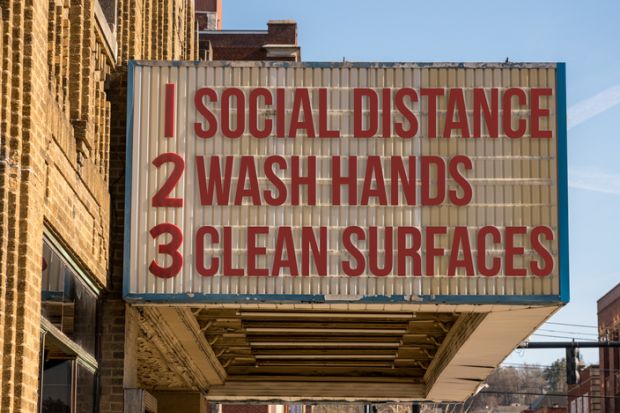Less than a quarter of US universities are officially planning to teach mostly or entirely in person this autumn.
The proportion of institutions promising a return to campus teaching has been dropping steadily, from estimates of more than 50 per cent in mid-July to about 22 per cent as students began moving into dormitories in mid-August.
Most institutions, however, are still inviting at least some portions of their students back to campus, in an act that they are portraying as an embrace of normality but critics are deriding as a transparent and risky grab for revenue.
Colleges are already facing dozens of lawsuits, and petitions backed by tens of thousands of students, demanding tuition fee reductions to compensate for the loss of in-person instruction. Only about a couple dozen institutions are known to have complied.
Universities have increased the pressure on themselves by expending great energy talking up the importance of on-campus reunions in the face of medical advice that is uncertain at best, instead of spending spring and summer working single-mindedly towards developing high-quality digital technologies and training, said higher education consultant Eric Stoller.
Some early-returning institutions, such as the University of North Carolina at Chapel Hill and the University of Tennessee at Knoxville, are already encountering virus outbreaks, he said.
“They’re sort of racing towards a cliff edge, and we all know it’s there,” Mr Stoller said of US universities.
Wealthier institutions such as Harvard and Johns Hopkins universities have made clear that they will teach online this autumn, confident that they can do it well.
Institutions that are less well resourced and more dependent on tuition fees are struggling much harder with the question, often talking optimistically about in-person teaching even as experts doubt that they will be able to keep it up for long.
Within those universities, students from the poorest families are in especially tough circumstances, said Joshua Kim, director of online programmes and strategy at Dartmouth College.
Wealth disparities that can be “smoothed over a bit” while on campus grow more significant as students are stuck inside crowded and sometimes chaotic homes with low-quality computers and mediocre internet connections, he said.
Register to continue
Why register?
- Registration is free and only takes a moment
- Once registered, you can read 3 articles a month
- Sign up for our newsletter
Subscribe
Or subscribe for unlimited access to:
- Unlimited access to news, views, insights & reviews
- Digital editions
- Digital access to THE’s university and college rankings analysis
Already registered or a current subscriber? Login








